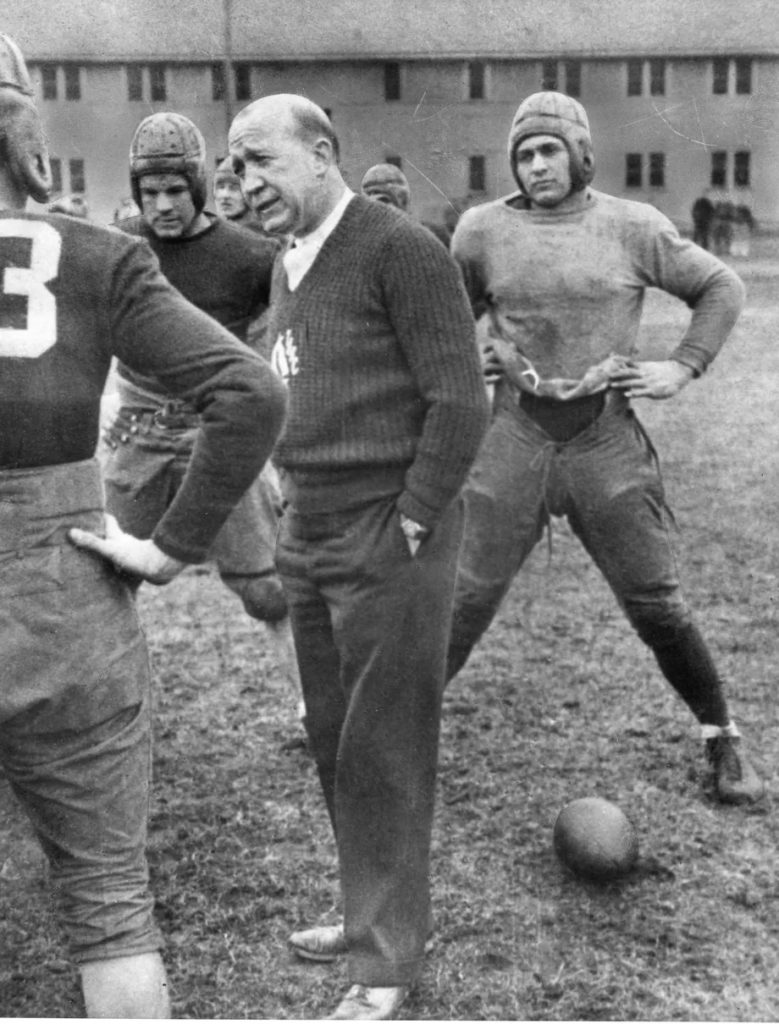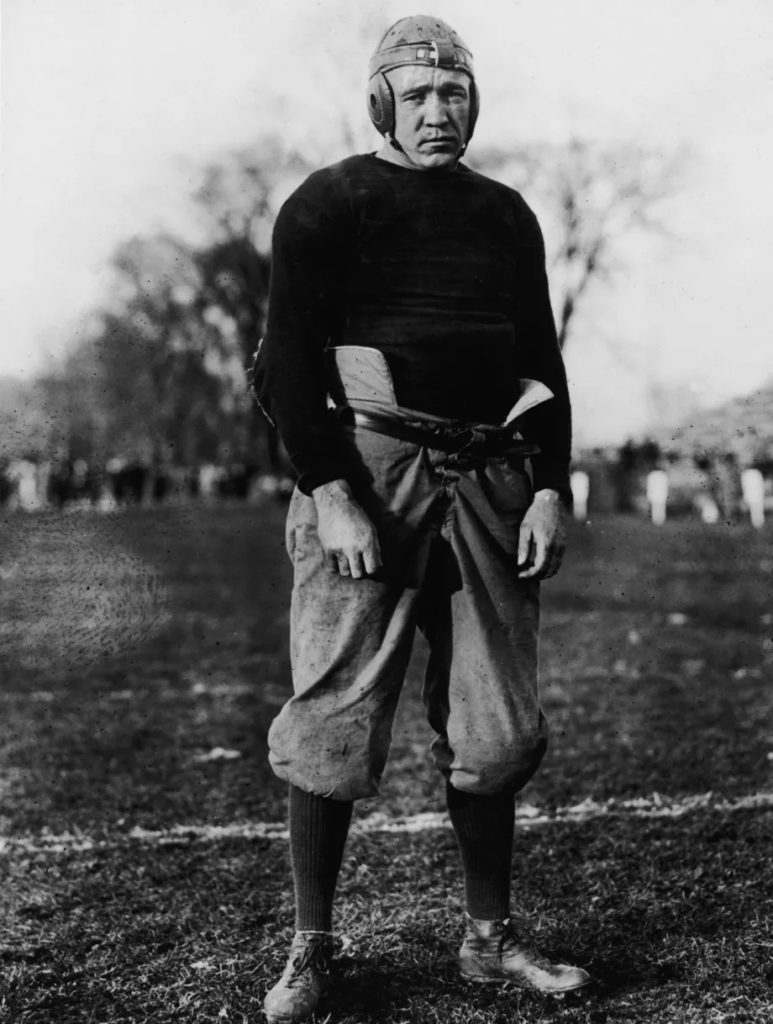Knute Rockne’s remarkable journey from an immigrant child to a beloved figure in American sports is a story that transcends borders and embodies the American dream. From his humble beginnings as a Norwegian immigrant to his tragic and untimely death, we will explore the impact and legacy of one of college football’s greatest coaches.

A Journey from Norway to Chicago
Knute Rockne was born in Voss, Norway, in 1888. At the age of five, he and his family immigrated to Chicago, seeking a better life in America. Overcoming the challenges of adapting to a new country, Rockne’s passion for sports emerged during his formative years.
The Rise of a Football Legend
Despite his small stature, Rockne’s determination and skill led him to excel in high school football and eventually earn a spot on the University of Notre Dame’s football team. He showcased his speed and agility, earning All-American honors and gaining recognition as a rising star in the sport. Eventually earning 3rd team All-American honors in 1913 and left school with a 22-0-2 record as a player.

The Birth of a Coaching Genius
Upon graduating from Notre Dame, Rockne embarked on a coaching career that would forever change the landscape of college football. He initially served as an assistant coach under Jesse Harper from 1914-1917 and quickly proved his worth, establishing strong relationships with players and becoming a respected figure on and off the field.
The Four Horsemen and Unparalleled Success
Rockne’s tenure as head coach at Notre Dame is synonymous with the legendary Four Horsemen. The quartet of Harry Stuhldreher, Don Miller, Jim Crowley, and Elmer Layden propelled the Fighting Irish to national prominence. One of their most memorable moments came in the 1924 game against Army when Notre Dame secured a 13-7 victory. Grantland Rice’s famous article, “Outlined against a blue-gray October sky, the Four Horsemen rode again,” forever etched their names in football history.

Rockne’s Famous Speech and Impact
Rockne’s inspirational locker room speeches, including his iconic “Win one for the Gipper” halftime speech, became the stuff of legends. Before a crucial game against Army in 1928, Rockne revealed that George Gipp, a former Notre Dame player who had passed away, had once requested that the team win a game for him when they faced adversity. The speech motivated the players, and they went on to win the game 12-6. Rockne’s ability to inspire his team and instill a sense of purpose in them became a hallmark of his coaching style.
Tragedy Strikes and a Nation Mourns
Sadly, Rockne’s life was cut short when he tragically died in a plane crash on March 31, 1931, at the age of 43. The entire nation, including President Herbert Hoover, mourned the loss of a true American hero. Rockne’s death left an indelible mark on Notre Dame and the sports world as a whole.
A Legacy That Endures
Knute Rockne’s journey from an immigrant child to becoming a legendary football coach at Notre Dame remains an inspiring tale. His impact on the game, his iconic speeches, and his unwavering dedication to his players and the university continue to resonate, ensuring that his legacy will live on forever.
Knute Rockne By The Numbers
- Debut: 1916, filling in for HC Jesse Harper
- Tenure: 1918-1930
- Record: 105-12-5

 Comment
Comment